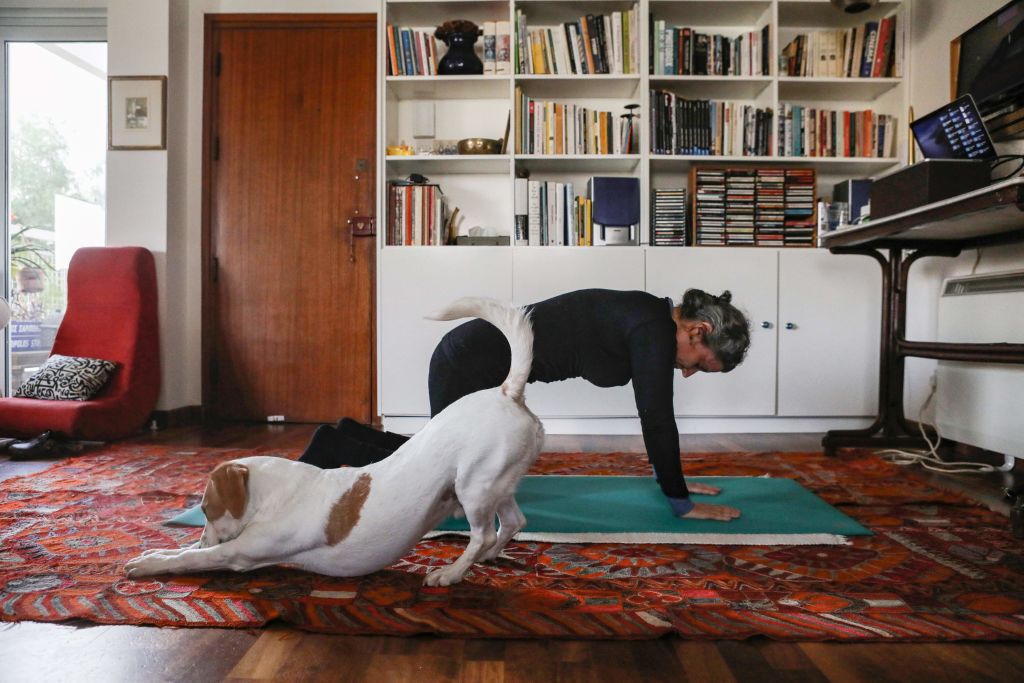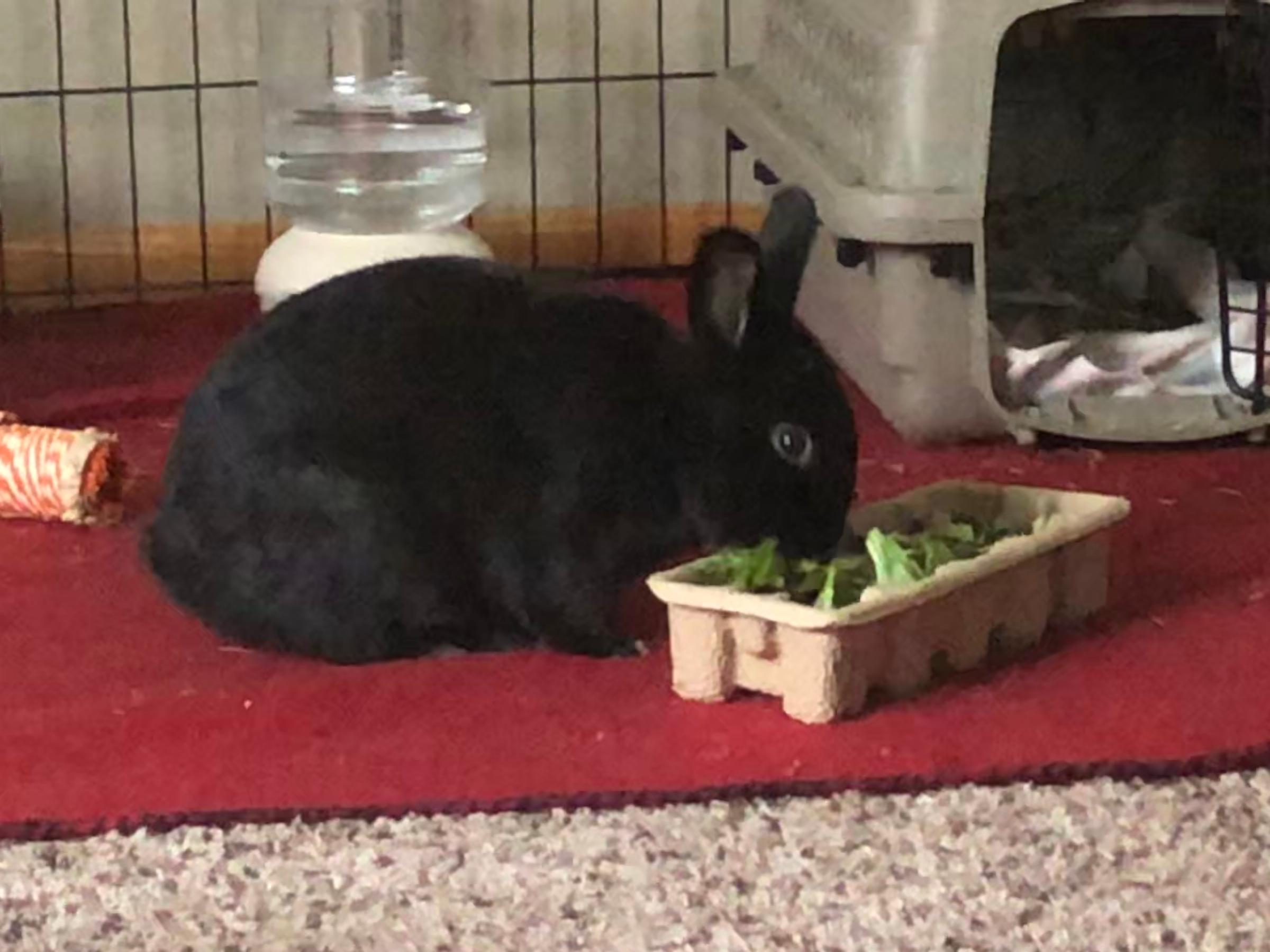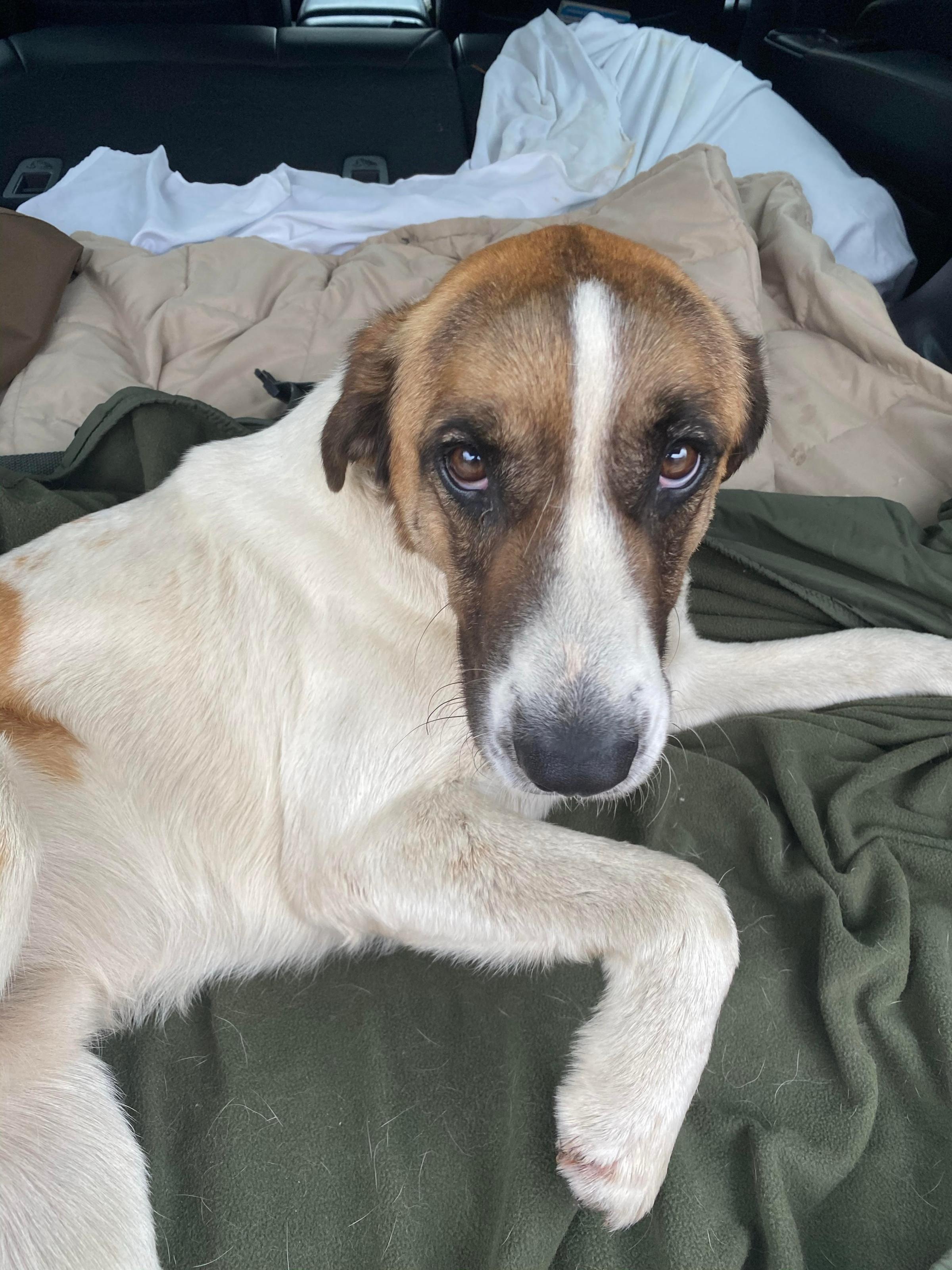
Anne Bonney doesn’t typically consider herself an ideal pet owner. While she loves animals, the 46-year-old professional speaker spends lots of time on the road, making it hard to justify keeping a furry friend at home.
But many of Bonney’s upcoming events have been cancelled or moved online amid the COVID-19 pandemic. Bonney, a frequent flyer who’s used to being around lots of people, found herself stuck at home alone in Traverse City, Mich. When a friend who runs a rabbit rescue center reached out about a fostering opportunity, she leapt at the chance, and soon found herself taking care of Pepper, a “spunky little thing” that offers both companionship and a distraction from world events.
“I love animals and can’t normally have them,” says Bonney, who’s allergic to more traditional pets like cats and dogs. Taking care of Pepper gives Bonney something to look forward to between online meeting after online meeting. “When other options are limited, I can go in and sit with her. She has fun, I have fun,” she says.

Lots of other Americans are also welcoming new animals into their homes for much-needed companionship while they self-isolate amid the COVID-19 pandemic.
“We have more people wanting to foster than we have pets,” says Ginnie Baumann Robilotta, vice-president of Animal Rescue New Orleans. The shelter, which is operating by appointment only, typically has about 50 dogs; it currently has only 16. From March 11 to April 5, 42 dogs and 14 cats were adopted from the shelter, compared to 27 dogs and six cats during the same period last year. “In spite of the uncertainty of what’s going to happen, the love of an animal is going to change people’s lives,” says Robilotta.
Keep up to date with our daily coronavirus newsletter by clicking here.
All told, animal rescue organizations across the country are seeing about a 90% increase in foster requests, says Kitty Block, president and CEO of the Humane Society of the United States. “It’s sort of the perfect storm of factors that have allowed people to foster at this time,” says Block. “People are home, working remotely, feeling socially isolated. This is not a usual thing for us. Having that dog or cat or hamster does make a big difference.”
The fostering boom is helping shelters and rescues, too. Like many other businesses and organizations, they are struggling with the economic effects of the coronavirus outbreak. As donations dry up and workers or volunteers stay home, having fewer animals on hand helps shelters focus on the remaining critters — and new ones that arrive as some people abandon their pets for financial reasons.
Is there any danger that people will give up their new pets once some semblance of normality returns? Block doesn’t think so — shelter staffers typically make sure people understand the responsibility they’re taking on. “There’s an investment made,” she says. “When people go to shelters, they’re having thoughtful, smart conversations about what it means to bring an animal into your home.”
Taking in a foster dog has given Aditi Srivastav a newfound sense of purpose amid the pandemic. After she started working remotely in March, Srivastav, 30, was struggling with the stress of self-isolation. Her husband, a geriatric nurse practitioner, is working long hours and putting himself in danger of contracting COVID-19. But during a late March home visit with a patient in rural South Carolina, Srivastav’s husband found an injured, abandoned dog, and took him home.
At first, Srivastav struggled with the emotional weight of tending to a hurt animal. “Feeling the helplessness that I’m not a vet, I cried,” she says. But her sense of burden quickly turned around. “I also realized it was the first time in two weeks of this self-quarantine that I felt some sort of contentment that I’m doing something that’s helping,” she says.

Now Srivastav and the pup — named Battle after a veterinarian who saved his life — are attached to one another. She misses her friends, but being around Battle has provided some much-needed joy. “Getting that gratification, that immediate response of ‘wow, I did something,’ is hard because so many things have moved online,” she says. “But you feel more content that maybe something good is coming out of spending time at home.”
The company of an animal in need can be particularly soothing for people stuck home alone. Barry Stewart, a professor at Mississippi State University, is currently living apart from his wife, an emergency room doctor. She usually travels between Starkville, Miss. and Memphis, Tenn. for work, but she’s been staying in Memphis to avoid bringing the virus back home. She also took the couple’s dog, Bradley, with her for company, leaving Stewart on his own. After the local humane society put out a notice seeking foster parents, Stewart, 57, came home with a lab-pit bull mix he’s been calling Alexa. He’s not sure if he’ll keep her forever — that’s for Bradley to decide when he gets home, Stewart says — but he appreciates her company for now.
“It’s been great to have her during this time,” Stewart says. “She gets me outside. We walk around the neighborhood, look at things. Otherwise I’d be alone.”
Please send any tips, leads, and stories to virus@time.com.
More Must-Reads from TIME
- Cybersecurity Experts Are Sounding the Alarm on DOGE
- Meet the 2025 Women of the Year
- The Harsh Truth About Disability Inclusion
- Why Do More Young Adults Have Cancer?
- Colman Domingo Leads With Radical Love
- How to Get Better at Doing Things Alone
- Michelle Zauner Stares Down the Darkness
Write to Mahita Gajanan at mahita.gajanan@time.com